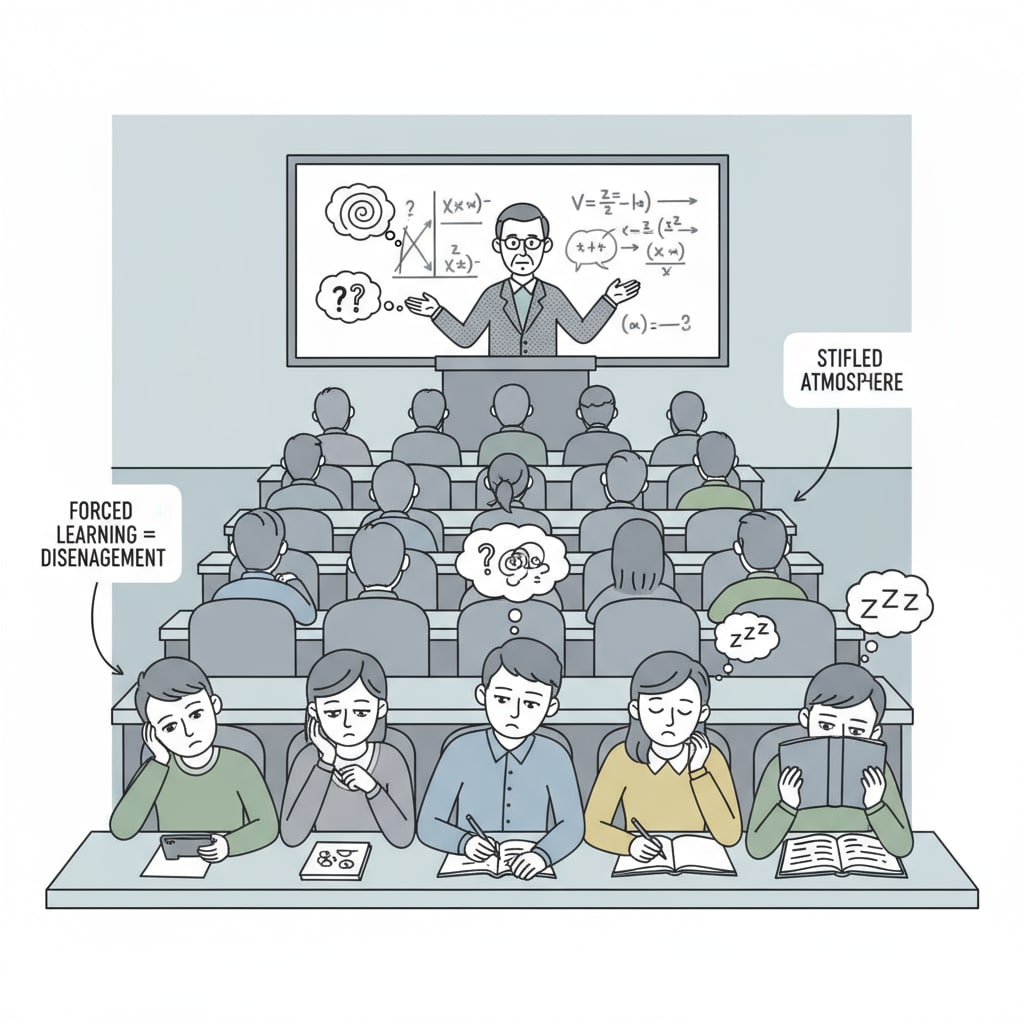The contemporary educational landscape, particularly the K12 system, is deeply rooted in the concept of compulsory learning. This approach, while intended to ensure universal education, brings to light complex issues related to school systems and student behavior. The very idea of compelling students to learn creates a situation where the desired educational outcomes are often elusive.

The Illusion of Forced Learning
At the heart of the matter is the misconception that learning can be forced. In reality, true learning is an internal process that requires motivation and engagement. Compulsory education systems, however, often rely on external pressures such as grades and attendance requirements. For example, students may attend classes simply to meet the attendance criteria without actually absorbing the knowledge. According to Education Psychology on Wikipedia, motivation plays a crucial role in the learning process, and forcing students can actually undermine their natural curiosity and enthusiasm for learning.
Consequences for Educational Quality
The attempt to enforce learning has a significant impact on the quality of education. When students are not genuinely interested in the material, they are less likely to actively participate in discussions and activities. As a result, teachers often find it challenging to deliver effective lessons. This leads to a cycle where the quality of education deteriorates. Moreover, the focus on meeting compulsory requirements may overshadow the development of critical thinking and creativity. As stated in Education on Britannica, a well-rounded education should foster these essential skills, but the current system may be falling short.

Another consequence is the increase in problem students. When learning is forced, some students may rebel against the system. They may exhibit disruptive behavior in class, which further disrupts the learning environment for everyone. This creates a challenging situation for teachers who must manage these students while still trying to teach. In addition, the pressure of compulsory learning can lead to stress and anxiety among students, which can have long-term effects on their mental health.
In conclusion, the contemporary K12 education system’s reliance on compulsory learning presents a complex paradox. While the intention is noble, the reality is that we cannot truly force students to learn. Addressing this issue requires a reevaluation of our educational approach, focusing on how to inspire and motivate students to embrace learning willingly. By doing so, we can hope to improve educational quality, create a more positive learning environment, and foster the development of well-rounded individuals.
Readability guidance: The article uses short paragraphs to present ideas clearly. Each H2 section provides key points related to the overall topic. The passive语态 is minimized, and transition words like ‘however’, ‘for example’, and ‘as a result’ are used to enhance the flow of the text.


